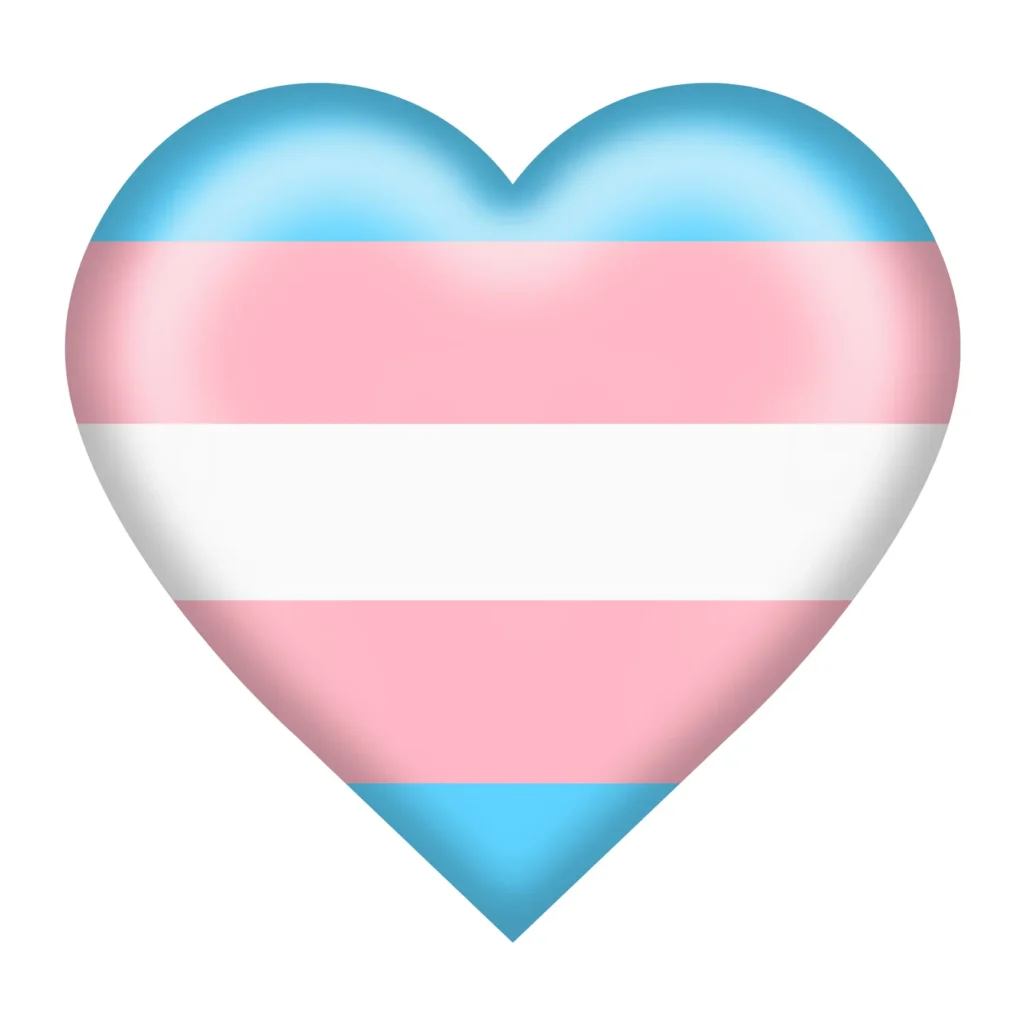Has your partner come out as trans or are they in the midst of transitioning? This blog is for you.
Coming out as trans can be painful, exciting, and quite a courageous process, rooted in deep self-discovery. Remember that they have not changed who they are, they are revealing themselves more fully to you and the world. They are also experiencing a world of emotions, possibly fear of rejection, loss of love, or misunderstanding.
What does it mean for you?
For you it may bring up a variety of different, complex and opposing emotions. You may experience surprise, grief, a deeper understanding, clarity, relief, fear, heartbreak, uncertainty for what the future holds. All of these emotions are completely valid. It is important to be able to grieve the changes even in the midst of supporting your partner. Both truths exist together. This is a space for both/and. You may experience deep sadness around the changes happening AND happiness to see your partner step into being more fully present. You may feel overwhelmed around the uncertainty for what the future holds AND excitement for a different kind of relationship. It may feel hard and complex and these emotions can exist side by side at the same time.
So Many Questions
This can be a time of questioning for you since it also reflects on your identity, assumptions and desires. The external appearance of the relationship changes. A seemingly heterosexual couple may now look like a same-gendered relationship and vice versa. This can raise both internal and external questions.
Some questions you may ask yourself are:
- “What does this mean about my sexuality?”
- “What if I am not attracted to my partner anymore after their gender presentation changes?”
These are all valid questions to explore in a safe place. It is a time to explore your own sexual identity as it may evolve and possibly become more fluid. Labels may continue to hold significance and on the other hand may expand and not be as important. You can choose to change your label or not. With this exploration it is important to remember that it doesn’t invalidate past or present experiences, it may just expand its context. It is important to continue conversations about these topics as both partners navigate to clarify any unspoken assumptions.
How do you talk about it?
One amazing tool during this transition is the Gottman- Rappaport Intervention where you are both able to slow the conversation down and both feel heard and validated in your own experience. One person shares without judgement or blame and the other listens for content and the underlying emotion. This creates a deep level of emotional connection. It can be quite healing if you can both respond with care, love and curiosity. This is not a time to problem solve, debate, convince or argue, instead it is to deeply understand each other creating a safe, affirming place for both partners.
Relearning Intimacy and Sexual Connection
Sexual orientation labels may shift, intimacy patterns may evolve. Sex may feel unfamiliar even in long term loving relationships. You may question what always seemed to be fact in terms of desire. Both may now be asking, “What turns me on now?” “What does my partner need or want?” “Can we have a fulfilling sex life?” “What does sex even look like anymore with this person?” Your partner’s body may change, and sensations, preferences and dynamics may change alongside. This is also a time to continue to be with all the feelings that arise, and in particular grief. Grief around what was and what may be lost or different. It is also a time to co-create something new. When you first got together it was hopefully a time of newness, firsts, and exploration.
Consider this a time of rediscovery. You might ask:
- What feels good to me/you now?
- How do I want to be touched by you?
- How do you want to be touched?
- How do I want to touch you?
- What turns me/you on?
- What desires do I/you have?
- What hopes and fears and concerns do I/you have?
- What does sex mean now to me/ to you?
If one or both of you feel uncomfortable talking about sex, go to your app store and download the Gottman Card Decks App (free). Open the deck called sex questions, these give structure and set questions that can open the conversation or give guidance.
Love Maps and Shared Dreams
This can be an amazing time to connect in a different and/or deeper way. Love Maps are how well you know and feel known by your partner, sharing your internal world with each other. Share with each other what is going on and how you are feeling, what you are wanting, even the day to day of work/school/kids/ life. Take time to revisit your dreams together. Share with each other what you still hope for the future as well as what may have changed individually or as a couple. Love Maps are not a “set and forget” conversation. Ask open ended questions as you walk on this path with each other.
If you haven’t already opened and downloaded the Gottman Card Deck App, do it now. This a a gem of a free resource. Open up Love Maps, Ritual of Connection, or Open Ended Questions.
Repairing When Things Get Hard
Expect moments of miscommunication and pain. This is bound to happen. Take time to repair with each other. Do not hold onto unspoken wants and needs, voice them in the positive. When you do not get the response you had wanted, let them know and try again, this time saying it differently. Reach out to have a physical connection, holding hands or a hug. Make a joke (sometimes it doesn’t land well or is too soon to be funny, if that happens apologize and let them know you care).
What’s next for us?
This takes many conversations. Feelings change. Hopes and fears and concerns change with time. At times the topic may feel too vulnerable or raw to share with your partner. Please get support outside of the relationship from someone who is experienced and trained in gender-affirming care and relationships. Your partner is not something to fix or pathologize. Getting support allows for space to share and hear other perspectives from those who have navigated those waters before. The Gottman approach reminds us: trust is built in small moments.
Stay or Go?
Some people choose to stay and work on it and some decide for a variety of reasons that they are not able to continue in the relationship with the changes. This isn’t a failure, it shows that you are evolving onto a different path that doesn’t include this person as a romantic partner anymore.
Grief is something that arises in this place. There is the loss of future dreams together. Your future may look different now. It is okay to grieve what your relationship was and what it can not be any longer. You had thought your life would look one way and it can feel like it has been completely turned upside down.
Impact on Your Identity
You may have concerns and sadness about what it means for your own sexual identity. You may view yourself one way and now, the world may view you and possibly treat you in a whole different light. Instead of being viewed as straight or LBTQIA, you are viewed differently. And the community in which you found solace, may question your membership. This ties into how you present to the world, what labels they may place on you just from your appearance.
If you want guidance and notice needing more tools then you currently have, reach out to a therapist. Check out the Gottman Referral Network where you can find a therapist who is well versed in this research backed method.
Intimacy During and After the Process
Another aspect that can feel quite raw and challenging is the sexual connection and how that shifts. Gender identity and sexual expression are intertwined and as one person transitions and expresses their gender identity differently, you both may experience changes in desires, comfort levels, and they may have different boundaries around their body and how this now affects how you both show up sexually. This can be a place of excitement as you explore new territory together, on the other hand grief may arise. It can be quite painful emotionally as there are changes with arousal patterns and the alignment of sexual orientation. Questions may arise like:
- Am I still attracted to my partner?
- Will I like who my partner is once they start hormones?
- Will I continue to be attracted to my partner once they have surgery?
- Can we be physically intimate and both enjoy it?
This is where being able to have open conversations with a therapist or your partner are important, to be able to talk without blame and judgement and defensiveness as you explore this is vital. Even with the support of a therapist or open conversations, the sexual incompatibility may be a breaking point. When you realize that separating is the healthiest path forward it may be absolutely heartbreaking.
If the Relationship Ends
For some couples deciding to end the romantic relationship does not necessarily mean the end of the connection. Some people are able to work through the complexity of the changes and be able to co-parent or have a friendship. Not everyone is able to do this. I do encourage you to get support from someone who deeply understands and gets the dynamics around someone who is transitioning as you work through your own process.
Take time to reflect on what you want as well as what may not feel right anymore. This is a time to explore your own boundaries and values without any judgement or blame. You also have needs during this time and it is okay to be able to notice and express those needs.
Remember that ending a relationship does not equal failure. This path does not negate the love and connection that you shared together. With any change, there are often both gains and losses. This is the time to acknowledge the both/and, feeling both that you need to leave and also the grief and heartache. Know that it is not an easy road and please get help and support from others who have traveled this road before. This is a different experience than separating for other reasons and finding someone who really understands can make a world of difference.
Keep choosing connection and appreciation, one step at a time in the mess and joy of life.
This only touches on a few aspects and is a complex time for each partner.
For more great content, please check out the Gottman Blog. There are also online resources available, memoirs and narratives, workbooks, education resources, and forums. You are not alone in this and can find support.
Resources
Books/Workbooks
The Trans Partner Handbook: A Guide for When Your Partner Transitions by Jo Green
The Reflective Workbook for Partners of Transgender People by D. M. Maynard. This is a free resource (at the time of this writing)
Reaching for Hope: Strategies and Support for the Partners of Transgender People by Suzanne DeWitt Hall
Narratives/Memoirs
Queerly Connected by Nuranissa Jones
Helen Boyd has written two books: My Husband Betty and She’s Not the Man I Married
Queerly Beloved by Anderson-Minshall








